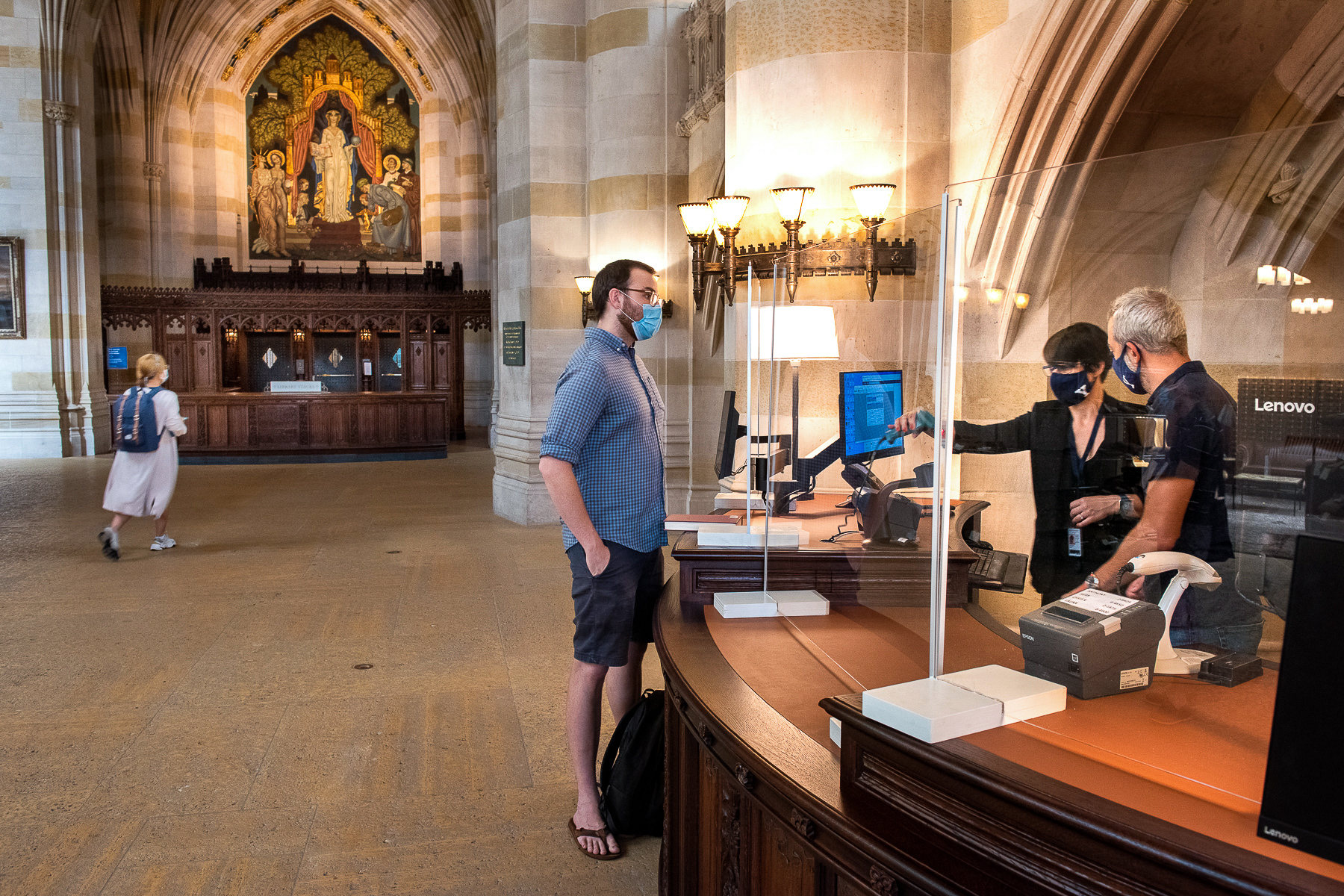
Courtesy of Mara Lavitt
In an effort to ensure that a remote student can still benefit from Yale’s suite of library services, Yale libraries have expanded their reach across the globe this year.
Students studying remotely, though unable to use library spaces, have access to nearly all library materials through various services provided by the University. Once COVID-19 cases spiked in the spring, library staff began digitizing thousands of library resources that can be easily accessed online. They have scanned over 20,000 images in the last month from the Beinecke Library alone, according to Beinecke Director Edwin Schroeder. The newly created Mail To Address service will begin delivering books to students studying remotely anywhere in the United States on Sept. 4. Libraries have also been delivering materials residential colleges since Aug. 24. Hours have also been extended for Ask Yale Library — the live chat, email and text service for users who want help in real time. The live chat is now staffed 94 hours a week, until midnight on most nights.
For classes that rely on physical artifacts, professors are able to record lectures in Beinecke, showing off the collections online. Additionally, papers can be scanned and provided to professors to use as slides in online classes.
“I would say that the heart of all of this is to create that equitable experience … We hope that students see the library as a place that is welcoming and inclusive to all students,” said Barbara Rockenbach, the University Librarian. “That’s a goal that I think we all have in the library.”
In order to set up a two-way dialogue between users and library staff during the pandemic, the library system has also created a Student Library Advisory Committee. Rockenbach added that although student feedback is always important for the library, she said that she thought “it will be very critical to [staff] this year.”
In addition to the expansion of online library services, staff have made physical precautions inside the libraries themselves. Libraries have added plexiglass to service points and have reorganized meeting spaces to prioritize social distancing and “tons of signage telling people to wear their masks and stay distant,” according to Patricia Carey, the libraries Director of Communications.
According to Rockenbach, despite these precautions, it has been possible to preserve some sense of normalcy in the library spaces.
“I was at the Marx [Science and Social Science Library] yesterday … people are wearing masks, but they look like students studying,” she said. “We don’t have as many students as we might normally this time of year, but I think while the atmosphere is different, the activities are similar, and I think that’s encouraging.”
Rockenbach also commented on the success of the newly improved library services. She said that Ask Yale Library statistics are “through the roof.” The library has already received over 300 requests for books to be delivered to residential colleges while students are in quarantine.
As of Aug. 31, students enrolled to study on campus are able to study, browse and interact with materials in the Bass Library, Gilmore Music Library, Haas Arts Library, Marx and Sterling Memorial Library. Special collections and artifacts housed in Beinecke are also available by appointment.
Grace Zhang | grace.y.zhang@yale.edu







